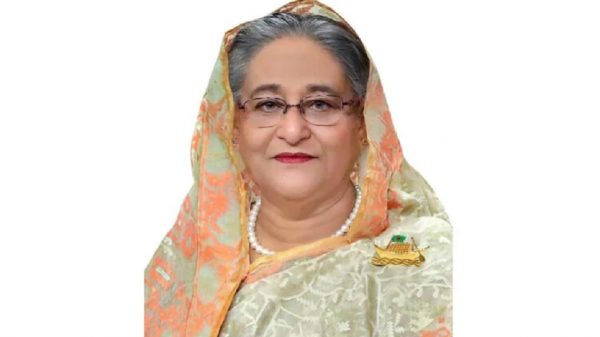Sun, 22, December, 2024, 4:50 am
News Headline ::
PM to attend ICPD30 Global Dialogue in Dhaka May 15

Shawdesh Desk:
The governments of Bangladesh, Bulgaria and Japan, together with UNFPA, will host the “ICPD30 Global Dialogue on Demographic Diversity and Sustainable Development” in Dhaka on May 15-16.
The dialogue creates a platform to discuss the challenges and explore the opportunities of the world’s shifting demographics.
2024 is the 30th anniversary of the International Conference on Population and Development (ICPD).
Prime Minister Sheikh Hasina, Foreign Minister Dr Hasan Mahmud, UNFPA Executive Director Dr Natalia Kanem, State Minister for Health and Family Welfare, Bangladesh Dr Rokeya Sultana, Parliamentary Vice-Minister for Foreign Affairs, Japan Hosaka Yasushi and Representative from the Government of Bulgaria are expected to join the opening ceremony on Wednesday, reports UNB.
The global dialogue will unpack global and regional population dynamics and diversity, covering topics such as intergenerational wellbeing and healthy ageing, the future of population data, and the changing demography of rural communities, according to UNFPA.
Around 200 representatives from local and national governments, academia, think tanks, technical experts, civil society organizations, and the private sector will share practical insights into the investments in health, education, housing or infrastructure, population change that are needed to adapt to changing demographic trends.
This dialogue will honour that legacy by focusing on practical responses to demographic change that reinforce a human rights-based approach to population policies that put gender equality and reproductive rights at the core.
Other sessions will cover – demographic diversity and dividends – promoting sustainability in a context of changing fertility and mortality; gender equality, sexual and reproductive health and reproductive rights, and demographic resilience in contexts of low fertility: unlocking the 1st demographic dividend in a context of high fertility and youthful populations; Future of sexual and reproductive health in a context of population change technology and life science: Promoting resilience for a smart future; Intergenerational wellbeing, and healthy ageing and the future of population data.
The second will cover – Population dynamics and the climate crisis; Inequality of climate risks and impacts; Where will we live? The impact of climate on habitable spaces, relocation and forced migration; Universal Health Coverage and strategies for strengthening health systems in light of demographic change and technology advances; Promoting green, diverse ICPD – friendly cities; the changing demography of rural communities; and the future of population policies for the post-2030 agenda and sustainable development.
Thirty years have passed since the landmark International Conference on Population and Development, where world leaders agreed to put individual rights and dignity at the heart of sustainable development.
The Programme of Action from the conference transformed global thinking on population issues at a time of anxiety about a rapidly growing global population, setting the standard for people-centred development.
With the world now facing diverse demographic changes, the thirtieth anniversary provides an opportunity to explore how the values of the Programme of Action can remain a beacon for common, global approaches to sustainable development – today and in the future.
These discussions will be informed by the principles and actions of the Programme of Action on demographic change and diversity, the environment, reproductive health, universality of human rights and gender equality.
Share This News
© All rights reserved © 2019 shawdeshnews.Com
Design & Developed BY ThemesBazar.Com























Leave a Reply